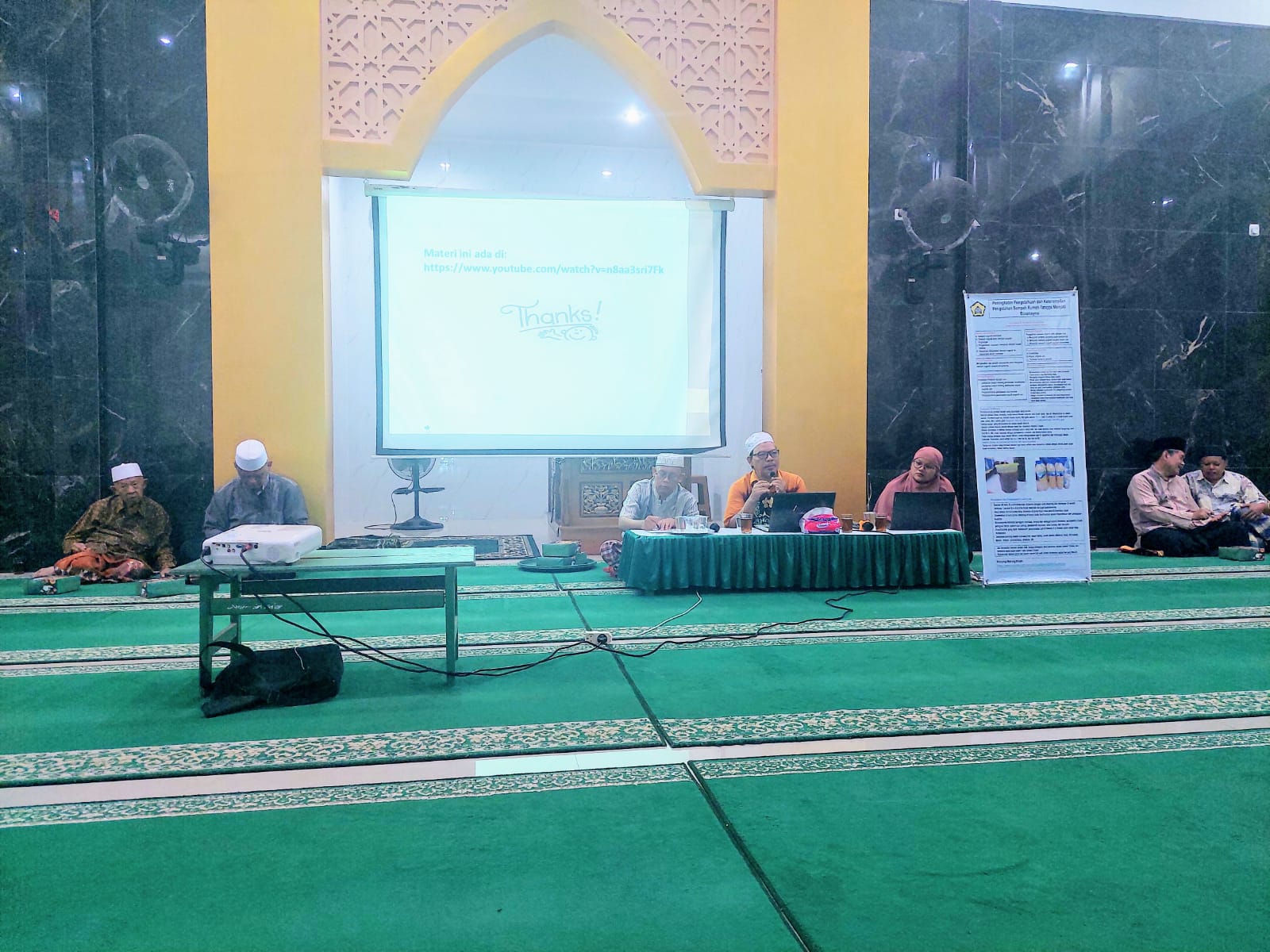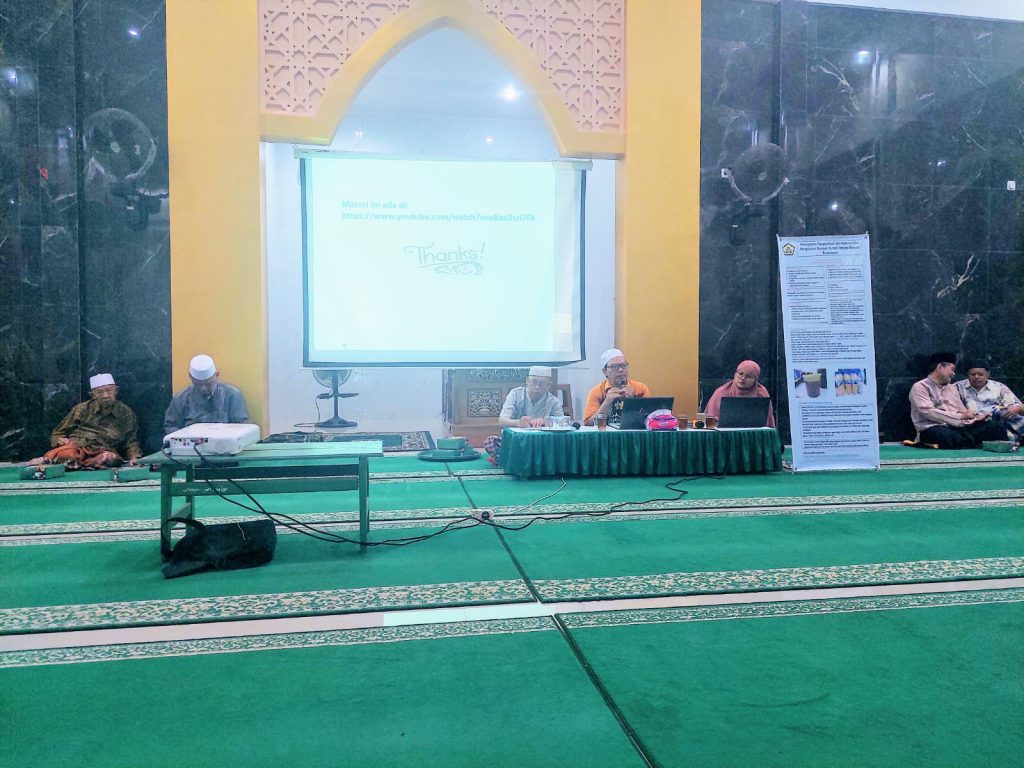
IMPROVING KNOWLEDGE AND SKILLS IN PROCESSING HOUSEHOLD WASTE INTO ECOENZYME
The Community Service Team of the Master of Natural Resource Management of Unib (Urip Santoso, Muhammad Faiz Barchia and Elsa Lolita Putri) has conducted community service in RT 11, 12, 13 and 14 RW 03 Pematang Gubernur Village during the period of August to November 2024. On this occasion, the team provided counseling and training on household waste management from selecting and sorting waste to processing household waste in the form of organic waste into ecoenzyme and liquid organic fertilizer.
Ecoenzyme is the result of processing organic waste such as fruit, flowers or vegetable waste that undergoes a fermentation process. This fermentation process is assisted by the presence of sugar (molasses). Ecoenzyme can be a multipurpose liquid and its applications for household needs include a mixture of detergent, floor cleaner, and scale cleaner. Basically, ecoenzymes accelerate biochemical reactions in nature to produce useful enzymes by using fruit or vegetable waste.
Making eco-enzymes is quite easy. To make eco-enzymes, we prepare the tools and materials to make eco-enzymes. The materials for making eco-enzymes are organic waste, namely any vegetable and fruit waste that is still in good condition and not the result of cooking. You can use orange peel, lime, cucumber, apple, lemongrass, or other vegetables. Then cut all the remaining vegetables and fruits into small pieces. Another ingredient is sugar, which is used is palm sugar, coconut sugar, aren sugar, liquid molasses, or dry molasses. It is not recommended to use granulated sugar. In addition, water is prepared, you can use gallon water, well water, PAM water, rainwater, or AC waste water. Airtight plastic containers are also prepared. It is highly recommended to use plastic containers rather than glass. Because glass containers can be at risk of breaking due to the activity of fermentation microbes.
In addition to introducing ecoenzymes, the team also introduced liquid organic fertilizers. Liquid organic fertilizer is a soluble solution containing one or more carrier elements needed by plants, this fertilizer is produced from organic and environmentally friendly materials. The liquid fertilizer can provide nutrients according to plant needs, the advantage of giving liquid fertilizer is that it can be more evenly distributed and its concentration can be adjusted according to plant needs. The use of POC in plants will help increase soil fertility and increase the pH of acidic soil so that it becomes better with the base content it has (K, Ca, Mg, and Na).
Community service participants are very interested in processing household waste into ecoenzymes and liquid organic fertilizers. One participant has made ecoenzymes from kitchen waste, and consulted with the team about making ecoenzymes. One resident is very interested in making liquid organic fertilizers, and is trying to make them. The plan is to give it to the plants he maintains.















